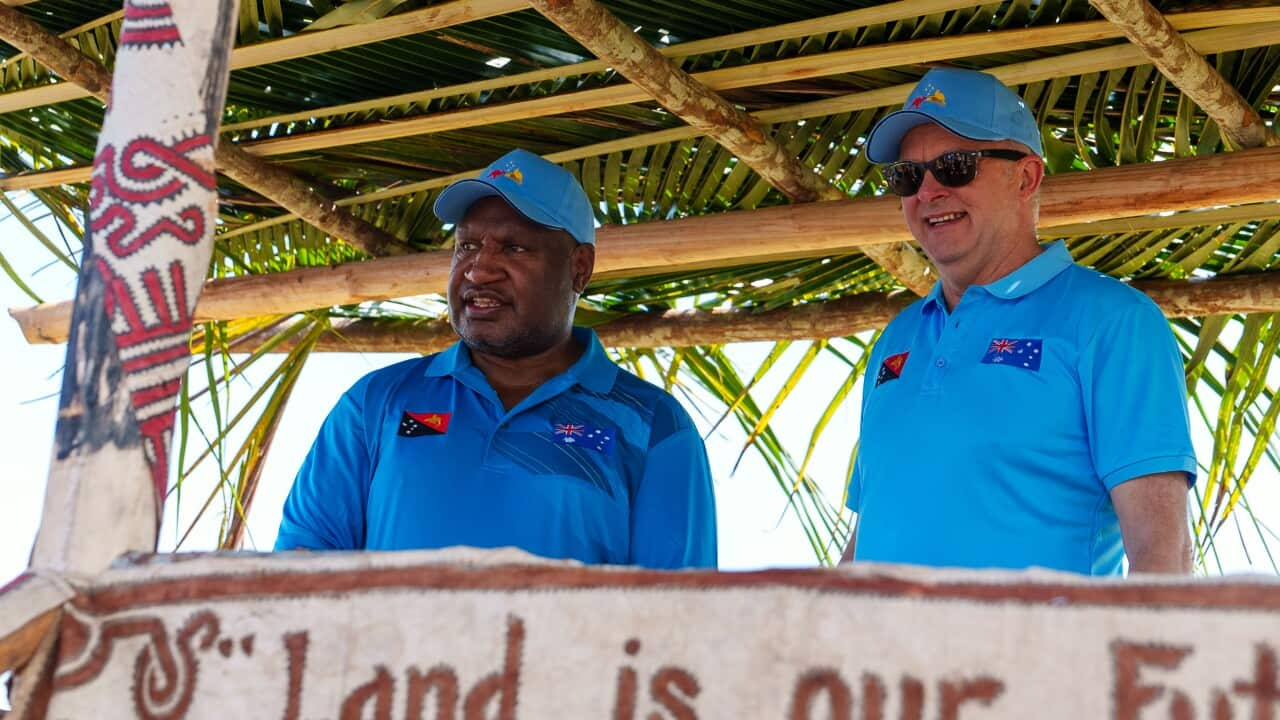Prime Minister Anthony Albanese hailed ties between Papua New Guinea and Australia as he retraced the footsteps of war heroes with his counterpart James Marape, amid concerns over China’s growing influence in the region.
The comments came as Albanese became Australia’s first sitting prime minister to walk sections of the — a trek that retraces the footsteps of Australian soldiers who during World War Two were helped by local men during a land-based battle against the Japanese.
The two-day journey, which started on Tuesday and culminated in an on Thursday, began two days after China’s foreign minister Wang Yi wrapped up his PNG visit after holding bilateral talks.
Marape has sought closer ties with China, and last year switched diplomatic recognition from Taiwan to Beijing. It emerged in January that Australia’s northern neighbour was — news that came a month after.
As the pair approached the end of their 15km journey, Albanese — who has — the joint walk represented the shared future and values between the two countries.
“We’ve worked together on climate change, we’ve worked together in the Pacific Island Forum and other bodies as well,” Albanese said on Thursday.
“I think this, this walk will send a message to the populations of both our countries, and to the region as well, about how important this relationship is and that Australia and PNG work together.”
Marape said while the pair “didn’t have to take this trip for us to anchor our relationship … but when you walk this sort of path it ingrains in your soul deeper meanings of life.”
The Battle of Kokoda — widely considered the first time Australia’s security was directly threatened — lasted from July to November 1942.
Prime Minister Anthony Albanese (left) with his PNG counterpart James Marape. Albanese is the first Australian prime minister to walk the Kokoda Track while in office. Source: AP / Australian Prime Minister’s officer via AP
About 56,000 Australians were involved in halting Japanese forces in PNG, which was then an Australian territory.
Some 625 Australians were killed and more than 1,600 wounded along the track.
Local men also played a vital role during the conflict, carrying supplies and helping to evacuate wounded and sick troops.
Marape said the number of Papua New Guineans who died was “unnumbered”, and that the “atrocity reminds us not to encourage conflict”.
“Never must conflict happen in PNG or in Australia or in Pacific,” he said.
“We will forever stand as buffer to conflicts, take your conflict elsewhere.”
Marape also gave “kudos” to Albanese, praising him for taking on one of the harder parts of the walk, rather than being dropped off and walking the easier section.
Anthony Albanese and James Marape’s Kokoda Trail trek culminated in an Anzac Day dawn service on Thursday. Source: SBS News
The pair attended an Anzac Day dawn service on Thursday in the town of Isurava — the site of a major 1942 battle to repel Japanese troops who were trying to take PNG’s capital, Port Moresby.
Albanese honoured the sacrifice of those who served along the mountainous trail, as well as those who served in other conflicts.
“Anzac Day has never asked us to exalt in the glories of war,” he said.
“Anzac Day asks us to stand against the erosion of time and to hold on to their names, to hold on to their deeds.”
With the Australian Associated Press.


